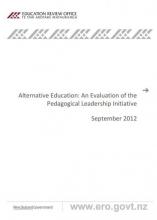Learning in a Covid-19 World: How schools have stepped up to support students and whānau
The ongoing coronavirus pandemic has caused significant disruption for students across New Zealand, due to lockdowns, social distancing and ongoing uncertainty. The Education Review Office interviewed 750 schools and surveyed over 2500 principals and teachers across the country, from May through to September 2020, to understand how they have responded. This summary highlights how schools have supported students and their whānau in the face of Covid-19.













